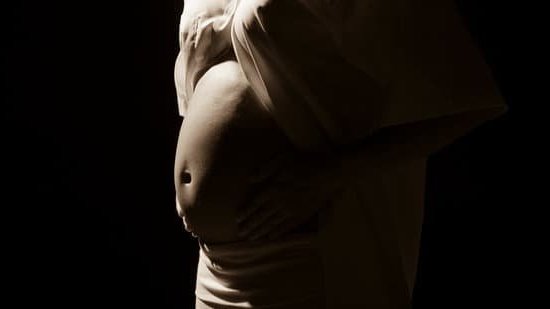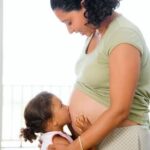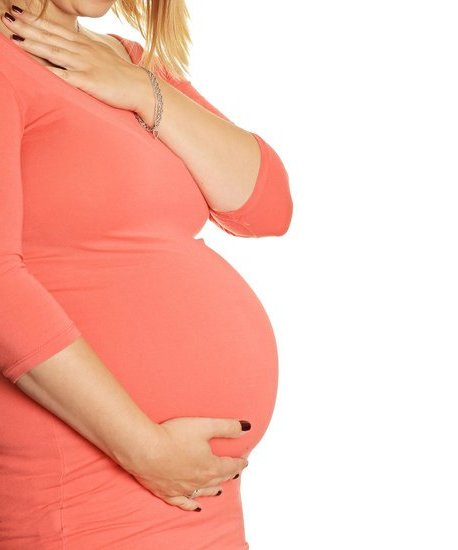How soon can you get symptoms of pregnancy? For many women, the early signs of pregnancy can often be the first clue that they may be expecting. Understanding the timing of when these symptoms can occur is important for those trying to conceive or for those looking to avoid an unplanned pregnancy. In this article, we will explore the various aspects of pregnancy symptoms, from when they can start to what factors may affect their onset.
The menstrual cycle plays a crucial role in determining when pregnancy symptoms may start to appear. Understanding the different phases of the menstrual cycle and the process of ovulation can provide insight into when a woman may be most fertile and likely to experience early pregnancy symptoms if conception occurs.
Once conception occurs, the next important stage is implantation, where the fertilized egg attaches itself to the lining of the uterus. This process typically occurs about 6-12 days after ovulation, and it is during this time that some women may begin to experience early signs of pregnancy. Understanding this timeline can help individuals recognize potential symptoms and take appropriate action.
Understanding the Menstrual Cycle
The menstrual cycle plays a crucial role in understanding the timing of pregnancy symptoms. It typically lasts about 28 days, although it can range from 21 to 35 days in adult women and from 21 to 45 days in young teens. The first day of the cycle is considered to be the first day of menstrual bleeding. During this time, the body prepares for potential pregnancy by releasing an egg from one of the ovaries, a process known as ovulation.
Ovulation usually occurs around the middle of the menstrual cycle, approximately 14 days before the start of the next period. This is when an egg is released from the ovary and is available for fertilization. If sperm fertilizes the egg during this time, conception takes place. The fertilized egg then travels through the fallopian tube to the uterus, where it implants into the uterine lining. This process is known as implantation and marks the beginning of pregnancy.
Understanding your menstrual cycle, particularly when ovulation occurs, can help you determine how soon you can get symptoms of pregnancy. Typically, early pregnancy symptoms may start to appear a week or two after conception and may continue throughout the first trimester.
It’s essential to note that every woman’s body is different, so individual factors can affect when these symptoms manifest. Hormone levels, sensitivity to bodily changes, and overall health can all play a role in how soon a woman experiences signs of pregnancy.
| Menstrual Cycle Length | Ovulation Timing | Typical Symptom Onset |
|---|---|---|
| 28 days | Around day 14 | 1-2 weeks after conception |
| Variations in length (e.g. shorter or longer cycles) | Mid-cycle (e.g. around halfway through cycle) | Varies depending on individual factors |
Recognizing early signs of pregnancy can be vital for those attempting to conceive as well as those looking to avoid pregnancy. By understanding how soon symptoms can appear and being mindful of bodily changes related to early pregnancy, individuals can make informed decisions about their reproductive health.
Conception and Implantation
During the process of conception, a woman’s egg is fertilized by a man’s sperm, leading to the formation of a zygote. This typically occurs in the fallopian tube, and the zygote then travels down to the uterus where it undergoes a process called implantation. Implantation occurs when the fertilized egg attaches itself to the uterine lining, which usually happens about 6-12 days after ovulation. This stage is crucial as it marks the beginning of pregnancy.
One of the most common early signs of pregnancy, implantation bleeding, can occur around this time. It is often mistaken for a light period and consists of light spotting that may be pink or brown in color. Other symptoms such as cramping or abdominal discomfort may also accompany this process. It’s important to note that not all women experience implantation bleeding, so its absence does not necessarily indicate a lack of conception.
It’s important to understand how soon symptoms may develop after implantation because this knowledge can help individuals recognize early signs of pregnancy and take appropriate steps based on their reproductive goals. Whether someone is trying to conceive or avoid pregnancy, understanding the typical timing of symptoms can aid in making informed decisions about their reproductive health.
Early Pregnancy Symptoms
Many women wonder how soon they can get symptoms of pregnancy after conception. It is important to understand the early signs of pregnancy in order to recognize and confirm a potential pregnancy as soon as possible. Some women may start experiencing symptoms as early as a week or two after conception, while others may not notice any significant changes for several weeks.
One of the earliest and most common pregnancy symptoms is a missed period, although this can also be due to other factors such as stress or changes in birth control. Other early signs of pregnancy include nausea, fatigue, breast tenderness, frequent urination, and mood swings. These symptoms can vary greatly from woman to woman and may also differ from one pregnancy to another for the same individual.
Understanding when you can start experiencing symptoms of pregnancy is crucial for those who are trying to conceive, as it can help them recognize the need for a pregnancy test earlier on. Alternatively, knowing the timing of early pregnancy symptoms is valuable for those who are trying to avoid becoming pregnant, allowing them to take appropriate measures if they suspect they may be pregnant.
| Early Pregnancy Symptom | Timing After Conception |
|---|---|
| Nausea | 1-2 weeks |
| Fatigue | 1-2 weeks |
| Breast Tenderness | 1-2 weeks |
Overall, recognizing the timing of early pregnancy symptoms is important for anyone who might be affected by a potential pregnancy. By being aware of when these signs typically appear and understanding that they can vary from person to person, individuals are better prepared to make informed decisions about their reproductive health.
When Can You Start Experiencing Symptoms
Timing of Symptoms
After conception, the fertilized egg travels to the uterus and implants into the uterine wall. This process usually happens about 6-12 days after ovulation. Once implantation occurs, the body starts producing hCG (human chorionic gonadotropin), also known as the pregnancy hormone. It is this hormone that triggers various changes in your body and results in early pregnancy symptoms.
Common Early Pregnancy Symptoms
The most common early signs of pregnancy include nausea, fatigue, breast tenderness, frequent urination, and food aversions or cravings. Some women may also experience mood swings, headaches, and spotting or light bleeding. It’s important to note that not all women will experience these symptoms and some may have different indicators altogether.
Factors Affecting Symptom Onset
Several factors can affect when a woman starts experiencing pregnancy symptoms. These factors include individual hormone levels, sensitivity to hormonal changes, overall health, and stress levels. Additionally, some women may not notice any symptoms until weeks into their pregnancy while others may start feeling them within a few days of conception.
Understanding when you can start experiencing symptoms of pregnancy is important for those who are trying to conceive as well as those who are trying to avoid pregnancy. Recognizing the early signs allows individuals to take necessary steps such as prenatal care or contraception early on in their journey to parenthood. If you suspect you may be pregnant but have yet to experience any symptoms, it’s recommended to take a home pregnancy test or consult with a healthcare provider.
Factors Affecting Symptom Onset
When it comes to pregnancy, the timing of symptoms can vary greatly from woman to woman. While some may experience early signs within a few days of conception, others may not notice anything until several weeks in. There are several factors that can influence when pregnancy symptoms start to appear, and understanding these variables can help individuals recognize and interpret their own experiences.
Factors Affecting Symptom Onset
- Hormone Levels: The hormonal changes that occur in the body during early pregnancy play a significant role in symptom onset. For some women, a rapid increase in hormones can trigger noticeable symptoms soon after conception, while others may have lower levels initially and experience delayed onset.
- Sensitivity: Each woman’s body is unique, and individual sensitivity to hormonal fluctuations can impact when symptoms become noticeable. Some women may be more attuned to changes in their body and recognize early signs sooner, while others may not pick up on these cues as quickly.
- Overall Health: Women who are generally healthy and in good physical condition may experience different symptom timelines compared to those with underlying health issues. Factors such as stress levels, diet, and exercise can also influence how soon pregnancy symptoms manifest.
Understanding the interplay of these factors is important for individuals who are actively trying to conceive or hoping to avoid pregnancy. By recognizing the potential variability in symptom onset, individuals can make informed decisions about when to take a pregnancy test or seek medical guidance. It’s essential to remember that every woman’s experience is unique, and there is no one-size-fits-all timeline for the onset of pregnancy symptoms.
In addition to personal considerations regarding symptom onset, medical professionals advise that it’s important for women of reproductive age to track their menstrual cycles and be aware of any changes in their bodies. This heightened awareness can help individuals detect early signs of pregnancy or address any potential concerns promptly.
The Importance of Timing
The timing of pregnancy symptoms is crucial for women who are trying to conceive or avoid pregnancy. Understanding when and how soon you can expect these symptoms can help individuals make informed decisions about their reproductive health.
Planning for Conception or Avoiding Pregnancy
For those trying to conceive, recognizing the early signs of pregnancy can be an exciting and important step in their journey to parenthood. On the other hand, for individuals looking to avoid pregnancy, being aware of the timing of pregnancy symptoms can help them take necessary precautions and seek appropriate medical advice if they suspect they may be pregnant.
Health Monitoring and Prenatal Care
Knowing how soon you can get symptoms of pregnancy also plays a significant role in health monitoring and seeking prenatal care. Early recognition of pregnancy symptoms allows women to start taking necessary supplements, making lifestyle changes, and seeking medical assistance for a healthy pregnancy journey.
Emotional Preparedness
Understanding when you can start experiencing pregnancy symptoms also allows individuals to emotionally prepare themselves for the possible life changes that come with starting a family. Whether it’s considering career adjustments, financial planning, or simply preparing oneself for the physical and emotional demands of pregnancy, being aware of the timing of symptoms can provide individuals with valuable time to mentally and emotionally prepare for what lies ahead.
Conclusion
In conclusion, understanding the timing of pregnancy symptoms is crucial for anyone who is sexually active and wants to either conceive or avoid pregnancy. The knowledge of how soon a woman can experience pregnancy symptoms after conception can help individuals make informed decisions about their reproductive health. Being aware of the early signs of pregnancy allows women to take necessary steps, such as seeking prenatal care or making lifestyle changes, at the earliest stages of pregnancy.
Moreover, recognizing early pregnancy symptoms can also provide emotional and psychological preparation for those trying to conceive. It can bring excitement and anticipation as couples eagerly await the confirmation of a new life. On the other hand, for those who are not ready for parenthood, recognizing these symptoms early on can prompt them to seek appropriate contraception or medical advice in a timely manner.
Ultimately, whether it’s planning for a baby or taking steps to prevent an unplanned pregnancy, knowing how soon you can get symptoms of pregnancy empowers individuals to take control of their reproductive health. By understanding the timing and onset of early pregnancy symptoms, people can make informed choices that align with their personal goals and preferences.
Frequently Asked Questions
What Symptoms Do You Have at 1 Week Pregnant?
At 1 week pregnant, most women may not experience any noticeable symptoms. This is because conception typically occurs around the middle of the menstrual cycle, and a missed period has not yet occurred.
How Early Do Pregnancy Symptoms Start?
Pregnancy symptoms can start as early as one to two weeks after conception. These early signs can include fatigue, breast tenderness, nausea, and frequent urination. However, every woman’s experience is different.
How Early Can You Tell if You’re Pregnant?
It is possible to tell if you’re pregnant as early as 7-10 days after conception using a home pregnancy test. However, for more accurate results, it’s best to wait until you’ve missed your period before taking a test. Additionally, a blood test at the doctor’s office would provide even earlier results.

Welcome to my fertility blog. This is a space where I will be sharing my experiences as I navigate through the world of fertility treatments, as well as provide information and resources about fertility and pregnancy.





